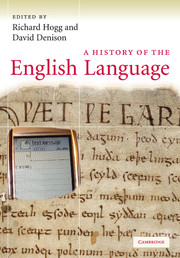8 - English in North America
Published online by Cambridge University Press: 05 September 2012
Summary
The colonial period: 1607–1776
In 1607, following several failed attempts, the English succeeded at Jamestown, Virginia, with their first permanent settlement in the New World. In the decades to follow, other English settlements were made at Massachusetts Bay, Plymouth, Providence and elsewhere.
Explorers and settlers meet Native Americans
Along the Atlantic seaboard, explorers and settlers met, mixed with and sometimes married Native Americans and used Native American names for many artifacts in American life and culture, as well as for places and for unfamiliar plants and animals in the new environment. For other places and things English speakers invented new names or invoked familiar ones. Even before 1607, scores of Algonquian words already peppered English. In A Briefe and True Report of the New Found Land of Virginia, first published in 1588, Thomas Harriot, an astronomer working for Sir Walter Raleigh, described openauk as ‘a kind of roots of round forme, some of the bignes of walnuts, some far greater’, and sacquenummener as ‘a kinde of berries almost like vnto capres but somewhat greater which grow together in clusters vpon a plant or herb that is found in shallow waters’; the berries would later be called cranberries. For various acorns, Harriot used their Algonquian names (sagatemener, osamener, pummuckoner, sapummener, mangummenauk), as he did for many New World plants, but these names did not survive in English.
- Type
- Chapter
- Information
- A History of the English Language , pp. 384 - 419Publisher: Cambridge University PressPrint publication year: 2006
- 2
- Cited by



